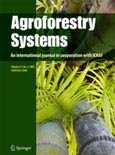Social, economic and institutional factors and driving forces enhance or hinder the adaptation capacity of agricultural and pastoral households and communities. The effectiveness of the resulting adaptation strategies influences the nature and extent of the impact of multiple stresses and shocks, including climate change’s, at the local-level. Using a 9-country dataset from sub-Saharan Africa, and integrating quantitative household-level analyses with qualitative work, we show evidence that adaptation is connected to population growth, dependence on cash to cover essential needs, and limited sources of employment other than exploitation of natural resources and sale of crop produce and animals.In some countries, government policies like privatization of community forests, range lands and riparian areas, the settlement of pastoralists, and the provision of subsidies for food or agricultural inputsreduce adaptation capacity. Policies take away the traditional decision-making and collective action powers that communities had to regulate the use and sustainable management of natural resources. Gender relations also affect agricultural practices and adaptation. The women farmers in our sample control less land than men, the land they control is often of poorer quality, and their tenure is insecure. Women, more than men, are dependent on internal village groups, as opposed to organizations operating at regional or national levels. Hence, women have less access to extension and input services, and are less likely than men to use improved seeds, fertilizers, and pesticides. The adaptive capacity of individuals and communities depends on their differential access to resources, economic assets and social capital, which are mediated by their socially defined rights and responsibilities. Highlights include: •Vulnerability and adaptation to climate change depend on opportunities governed by the varied and complex interplay of social relations, institutions, organizations, and policies.•Climate is one of many influences that affect the producers’ coping and adaptation strategies. •Women and men incorporate a wide range of technology and production management adjustments.•The producers’ most frequently cited reasons for adjustments include decrease in productivity, fluctuation in prices, market opportunities, and frequency of drought.
DOI:
https://doi.org/10.1016/j.gloenvcha.2015.06.003
Altmetric score:
Dimensions Citation Count:
























